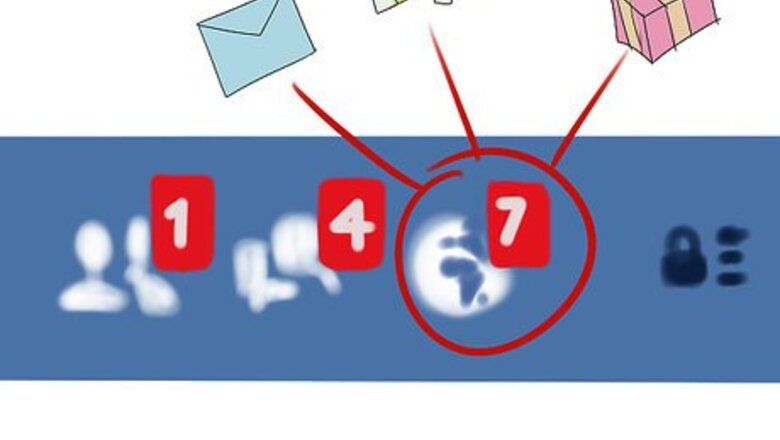
views
- If you feel threatened or harassed in any way, report the behavior to Facebook and to the appropriate authorities.
- If you don't feel harassed or threatened but want the person to stop communicating with you, try being direct.
- If somebody won't leave you alone on Facebook, block their account.3/1/24
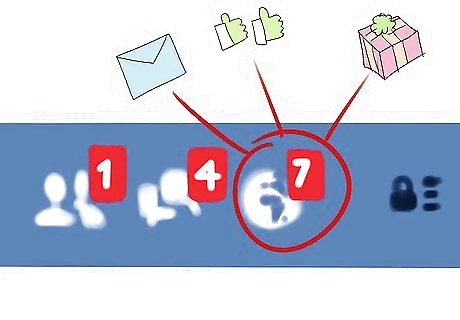
Check for possible Facebook stalking signs. While stalking on Facebook doesn't have the physical elements of being stalked in the real world, such as being followed or watched, etc., the feelings tend to be just the same and are just as real. Some indicators of Facebook stalking might include (dependent on who the person is and what they're up to): Is the person not leaving you alone despite your various requests to stop messaging you, leaving comments, or sending you things? Are they leaving lots of comments that are suggestive of the two of you spending more time, or even the rest of your lives, together (and they're not your lover or spouse)? Are they harassing or intimidating you with abusive language, cursing, or sexually suggestive comments? Are you being bullied and/or threatened? For example, has the person been posting unkind, doctored, private, etc., photos of you online or threatening to do so? Does the person keep sending you messages, butting into your conversations, or posting updates about you? Even if the person is not being nasty, mean, or threatening, this still reveals obsessive behavior.
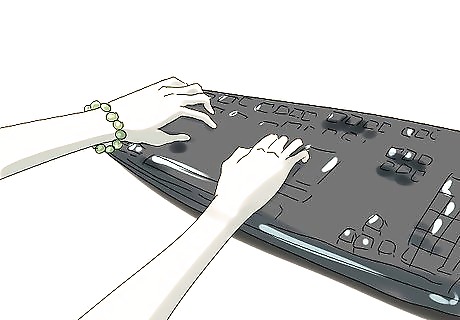
Respond in a graduated way. If you don't feel immediately threatened, try explaining to the person how their behavior makes you feel. There is always the possibility that this person doesn't understand that what he or she is doing is so upsetting to you. Try to open the lines of constructive communication before taking the issue more seriously. After all, there's no need to cause unnecessary drama in your life because you reacted rudely to the other person or misunderstood their motives, only to end up with them and 10 other people ranting at you about it! Start by assuming the best and simply asking them to stop, keeping in mind that if this doesn't work, you have all the remaining options at your disposal. Say something like, "Hey J! Did you realize that you're the only person who leaves me posts and messages every hour? I'm finding it hard to deal with and I'd be happy if you could cut it back to, say, one post a day instead. Does that work for you?" Obviously, if the person leaving the messages and notes is a real-life close friend, boyfriend or girlfriend, or a family member, it is obvious that some of these people will leave a lot of messages because it seems the natural thing to do. All the same, they should acquiesce to any requests from you to chill on their excessive messaging and if talking to them doesn't work, speak with other family members or friends to get support.
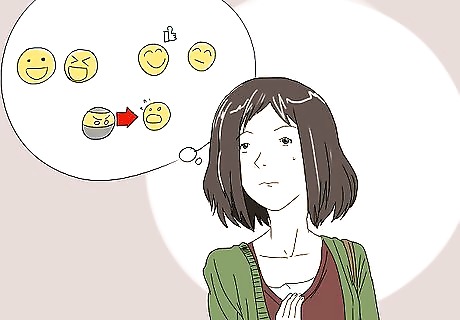
Look to the intent behind the stalker's motives. The intent behind the person bothering you matters; clearly, there is a difference between friends and family browsing your online information to keep themselves apprised of what you're sharing and a person who targets you specifically, clinging over everything you do and then remarking on it, possibly spooking you.
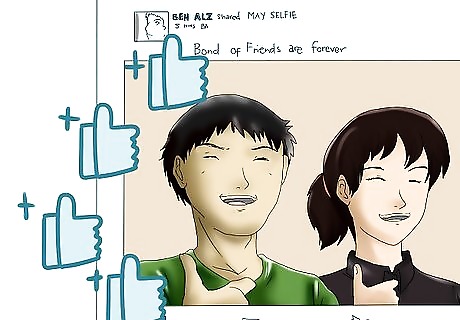
Consider your own perception of the Facebook stalking situation. If the person stalking you is chatting with you every time you're online, sending you constant messages in your inbox, always commenting on and liking all your posts and photos, and is barely leaving you alone, your response can range anywhere from irritation and frustration to finding it unpleasant, difficult to deal with, and overwhelming. Even if these actions are done only occasionally, there can be a problem where anything they've said leaves you feeling pressured, upset by what they've added, or you've asked them to stop contacting you at all but they haven't. Consider your own feelings before worrying about theirs. Do you feel like someone is stalking you just because of what they're saying or doing? Do you feel as if someone is obsessing over you (either because they really like or really hate you)? Do you feel overwhelmed, bewildered, or annoyed by their constant messaging and posts? This is enough of a reason for you to find a solution that works for you.
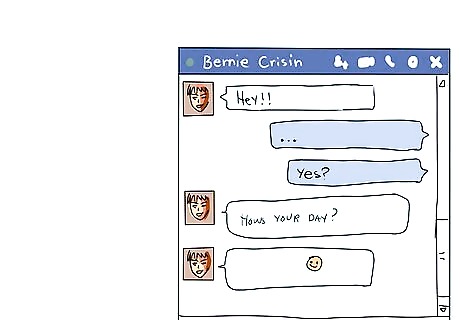
Try short replies or no replies at all. If they comment on a picture by saying such things as how pretty it is and how you should hang out with them, how awesome they think you are, etc., just say a little; a "Thanks" will suffice. If they chat with you and write really long messages just say, "lol" or "ok" to show that you aren't really interested. Next, proceed to not reply at all to anything this person leaves on your wall and in your message box. For example, if they comment on your status just saying, "lol" or "ok", don't even reply, and they won't have leverage left to keep that comment stream running. In this way, you're giving out subtle hints that you're annoyed by what this person is doing but that you're not going to get involved by replying.
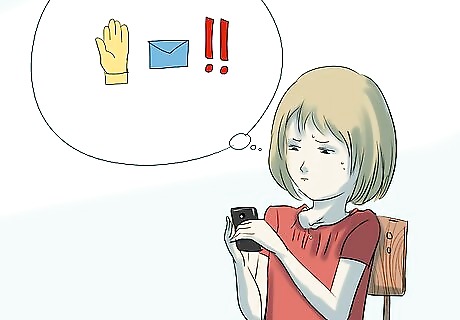
Leave less subtle hints. More obvious hints might cause some people to feel embarrassed enough around mutual friends online to stop. For example, tag them in a post (put the @ symbol and then their name) and say something like, "I love how (person's name) comments and likes all of my things!" This is not too rude, but it gives them a clear hint that you've noticed and find it annoying. Hopefully, they'll get the hint. Just be aware that they might also think it's a compliment or a thank you to them. You might try a post: "Please don't leave comments when I post stuff like X, Y, Z. It's just an update of no consequence!" It doesn't directly name them but it does make it clear to them that you don't think much of the commenting.
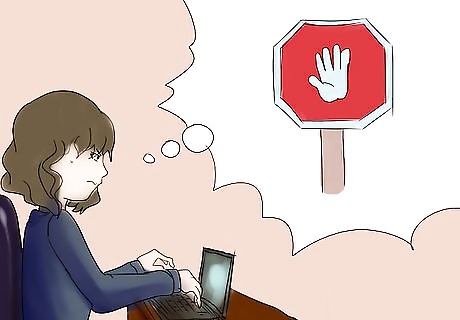
Ask them to stop more firmly this time. When it really starts to get on your nerves and you've already tried the soft approaches, get back to them politely but be firm this time. Send a chat message or an inbox message and let them know that the constant commenting and messaging are not appropriate, and that you'd like them to comment and like your stuff a lot less. For example: "Hey X! I'm following up on my earlier request to you to ease up a little on the posts and messaging. It's really not working for me having you leave so many posts; it's not like I even post interesting stuff worth commenting on half the time. I had hoped you'd understood my request last time and now I'm letting you know that I need you to stop doing this. It's not like I'm going to read or respond to what you're adding and it'd be better for both of us if you stopped." At this point, you can make a choice as to
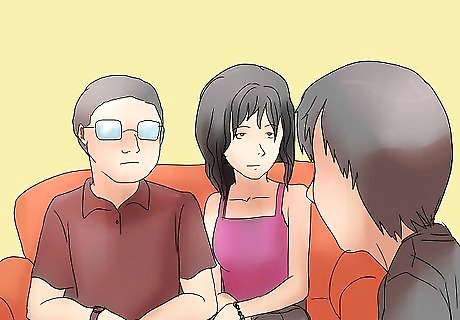
Block the person who is stalking you. This is a measure of self-protection and gives them time to cool off and stop obsessing over you. Additionally, talk to parents, friends, teachers, counselors, etc., and let them know what you're going through. Actions taken to instill fear or make threats are as real and wrong online as they are offline. This is not something to put up with alone and the sooner you get support and someone else to talk to, the sooner you'll know whether or not the fears are in your own head or whether there really is a situation to be concerned about. Additionally, you can block them on Facebook Chat. Never let any threats of harm to you or property damage slide. These are police matters and contacting the police immediately is warranted. You may also choose to report them to Facebook as well. This will bring in Facebook's abuse team who have the ability to prevent them from using Facebook or contact their Internet service provider or local authorities. Realize that some obsessive people don't always understand the harm they're inflicting. In some cases, they may even think they've been super friendly or caring, and being blocked can cause them to take this as a personal rejection which might lead them to seek to muddy your reputation if you're not careful. On the other hand, they may just be someone who really got the wrong end of the stick on how to use Facebook and will apologize when he or she finally "gets it".
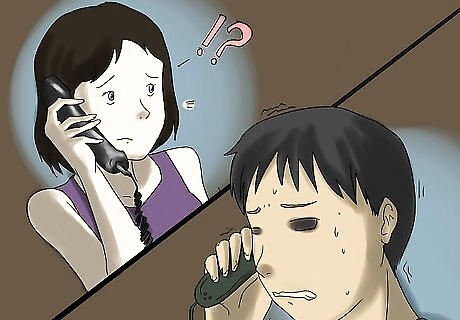
Tell your friends. It's important to let friends you trust know what's happening, especially where they're mutual friends with both of you. If they're supportive of you, they can either take the same action or they can keep a lookout for the behavior of the blocked person and let you know what's happening. This is important for several reasons – if you took this action because you felt there was no other choice but you're still offline friends, then your other friends can help smooth the waters between the two of you; or, if the blocked person feels offended and tries to retaliate, the more people who can support you and try to help the other person see the error of their ways, the better.




















Comments
0 comment